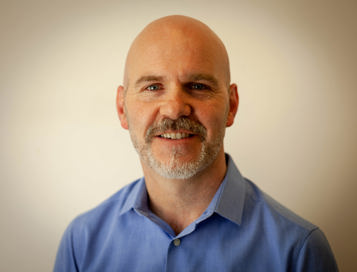I’ve been behaving a bit diabetic recently. I think it might be lack of sleep.
17/09/2019
For almost fifty years we have campaigned for the rights of people severely affected by mental illness - and while public perceptions of conditions such as bipolar disorder and OCD have generally improved, understanding of schizophrenia has remained largely unchanged. We spoke to Brian Dow, Director of External Affairs at Rethink Mental Illness about how we can change this.
 Assuming you’re still with me, you’ve probably quickly concluded that I’m either someone whose clinical knowledge is cretinously offensive or that I might have a sneaking admiration for Dadaist writing. Fair enough. What then if I replaced “diabetic” with “schizophrenic”? How would it read? More to the point, how did it sound? Sitting on a train pulling out of Paddington last Wednesday afternoon, listening to someone who sounded otherwise perfectly pleasant, mention it to their friend in a conversation in the seat in front of me.
Assuming you’re still with me, you’ve probably quickly concluded that I’m either someone whose clinical knowledge is cretinously offensive or that I might have a sneaking admiration for Dadaist writing. Fair enough. What then if I replaced “diabetic” with “schizophrenic”? How would it read? More to the point, how did it sound? Sitting on a train pulling out of Paddington last Wednesday afternoon, listening to someone who sounded otherwise perfectly pleasant, mention it to their friend in a conversation in the seat in front of me.
Ideally, I’d like to misquote Brontë and say, Reader I harried him, but I’d be fibbing. Instead I got off with the faintly depressing thought that despite the huge progress that has been made in tackling the stigma associated with mental ill health over the last decade or so, it doesn’t seem to have extended to what remains a profoundly misunderstood condition. Or to put it another way, if we are talking about it, we are only talking about it in a way that really doesn’t help.
In a sense it was that same feeling of bewilderment and frustration that caused a group of carers to come together almost 50 years ago to form the National Schizophrenia Fellowship, (the organisation that in time became Rethink Mental Illness) to support one another and their loved ones struggling to cope with the double burden of a long term severe mental illness and a society that seemed not to understand or care.
No doubt those fledgling meetings were concerned with the need to explain to friends that schizophrenia didn’t mean a split personality or that it caused violent behaviour. Perhaps people shared their concern and pain over how long it took to get a diagnosis, and when you did on behalf of your son or daughter, telling people could be agonisingly difficult because of the shame and fear.
It was certainly once also the same for people who had bipolar disorder, anxiety or depression. So, things can and do change – it just seems that in the case of schizophrenia change comes particularly slowly.
It’s been said that the definition of insanity is doing the same thing over and over again and expecting different results. Having campaigned for five decades on the issue there are certainly times when it will have felt maddening to – and broadly speaking, people living with schizophrenia can find it as difficult to find the right care, jobs and secure good housing as they ever did.
That said, it is not naïve to say there are certainly grounds for cautious optimism. Improvements in Early Intervention services mean that more people than ever are able to access care. On those occasions where people become so ill that they need to stay in hospital, the recovery rates are also steadily improving.
So with our 50th anniversary coming up we inevitably are engaged in a sense of introspection, looking back to consider what we (with the support of people with lived experience, fellow charities and many passionate campaigners and decision makers) have achieved and to take a look through the longer lens for a change, rather than focussing on the here and now.
Appropriately mindful of Churchill’s quip that “history will be kind to me because I intend to write it” all those who have been involved in trying to secure a better deal for people with schizophrenia or who look after someone who does can certainly claim to have remain dogged in the face of little progress. With some of the commitments beginning to get hard-wired into the health system by leaders in the NHS perhaps in a few years’ time we will feel less contained in our analysis and instead find ourselves in the midst of world-leading support for people living with the illness. However, that will only happen if we talk more openly about the condition, which in turn will create a mandate for change, the investment in the services needed to support people.
And THAT will only happen if we Rethink Schizophrenia.
Find out more
Help us help others
£3 a month could help to fund our Advice Service. Over the phone, it offers practical help on welfare benefits, medication, community and much more.



